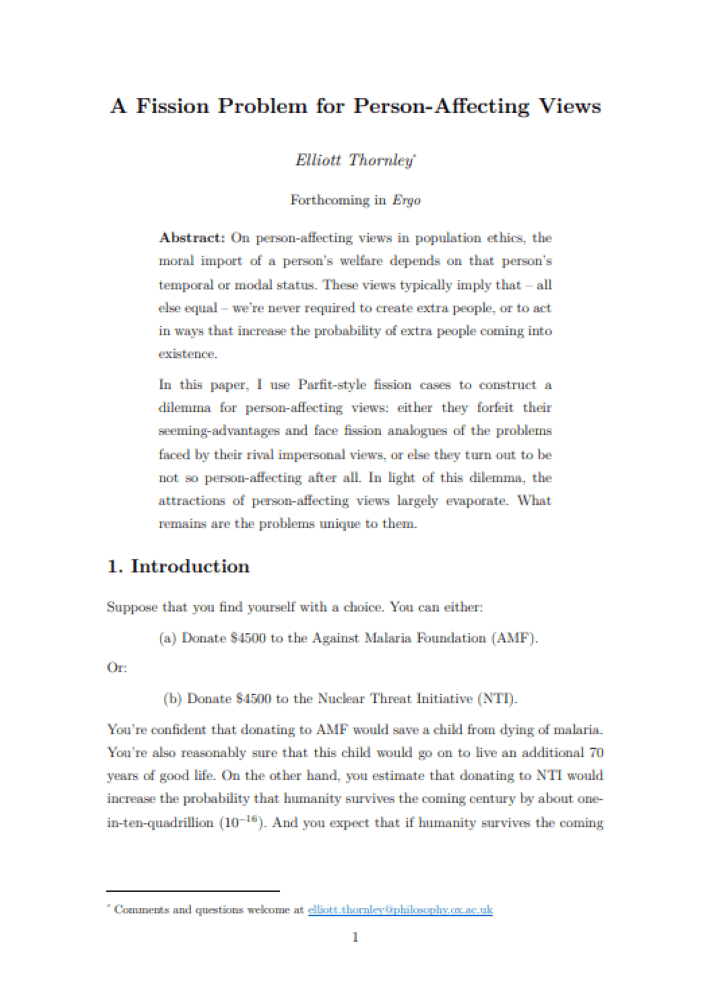A Fission Problem for Person-Affecting Views
Elliott Thornley (Global Priorities Institute, University of Oxford)
GPI Working Paper No. 26-2024, forthcoming in Ergo
On person-affecting views in population ethics, the moral import of a person’s welfare depends on that person’s temporal or modal status. These views typically imply that – all else equal – we’re never required to create extra people, or to act
in ways that increase the probability of extra people coming into existence.
In this paper, I use Parfit-style fission cases to construct a dilemma for person-affecting views: either they forfeit their
seeming-advantages and face fission analogues of the problems faced by their rival impersonal views, or else they turn out to be not so person-affecting after all. In light of this dilemma, the attractions of person-affecting views largely evaporate. What
remains are the problems unique to them.
Other working papers
Existential risk and growth – Leopold Aschenbrenner (Columbia University)
Human activity can create or mitigate risks of catastrophes, such as nuclear war, climate change, pandemics, or artificial intelligence run amok. These could even imperil the survival of human civilization. What is the relationship between economic growth and such existential risks? In a model of directed technical change, with moderate parameters, existential risk follows a Kuznets-style inverted U-shape. …
Longtermism in an Infinite World – Christian J. Tarsney (Population Wellbeing Initiative, University of Texas at Austin) and Hayden Wilkinson (Global Priorities Institute, University of Oxford)
The case for longtermism depends on the vast potential scale of the future. But that same vastness also threatens to undermine the case for longtermism: If the future contains infinite value, then many theories of value that support longtermism (e.g., risk-neutral total utilitarianism) seem to imply that no available action is better than any other. And some strategies for avoiding this conclusion (e.g., exponential time discounting) yield views that…
The end of economic growth? Unintended consequences of a declining population – Charles I. Jones (Stanford University)
In many models, economic growth is driven by people discovering new ideas. These models typically assume either a constant or growing population. However, in high income countries today, fertility is already below its replacement rate: women are having fewer than two children on average. It is a distinct possibility — highlighted in the recent book, Empty Planet — that global population will decline rather than stabilize in the long run. …

